

Applicants should hold a Bachelor of Science in Engineering, be a civil engineer, or hold an equivalent university degree or professional certification.
The objective of the Master of Engineering Sciences Program is to train professionals able to conduct research in science and technology. This aim is achieved by teaching students how to solve relevant problems within the selected specialized research line. Graduates are able to fully able to conduct, manage, and supervise engineering research in the academic sphere and in public/private industries. Program graduates will have the skills needed to enter industry, begin a doctorate program, or launch their own ventures, founding businesses that have technological and innovative elements.
To apply to the Master of Engineering Sciences Program, candidates should have a Bachelor of Science in Engineering, professional certification as a Civil Engineer, or an equivalent university degree or professional certification.
The Master of Engineering Sciences Program only grants one degree but has a number of specializations:
Graduates of the Master of Engineering Sciences in this area acquire the necessary skills to solve complex problems related to the development, materialization and maintenance of infrastructure, use knowledge and advanced techniques of construction engineering in the design and execution of projects, evaluating technical, economic, social and environmental aspects to obtain an efficient materialization of engineering projects. They will have the skills to apply research methods to solve Engineering problems oriented to Research, Development and Innovation (R + D + i), becoming specialists with a solid technological background, capable of conducting research to develop innovative solutions to technological problems, and being able to act as agents of deep technological changes within the companies.
Area head: Claudio Mourgues Álvarez
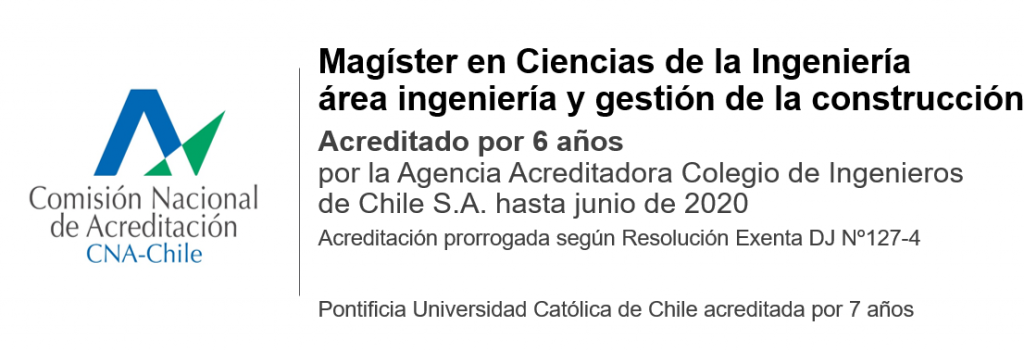
Graduates from the Master of Engineering Sciences Program in this area specialize in the design and analysis of infrastructure works: buildings, bridges, dams, industrial structures, tunnels and retention walls, and docks and coastal defenses. Particular attention is given to seismic-resistant structures, which includes aspects related to seismic risks and responses, as well as the behavior of earthquake-resistant structures and appropriate methods to mitigate damage.
Area head: Cristián Sandoval Mandujano
More information available here.
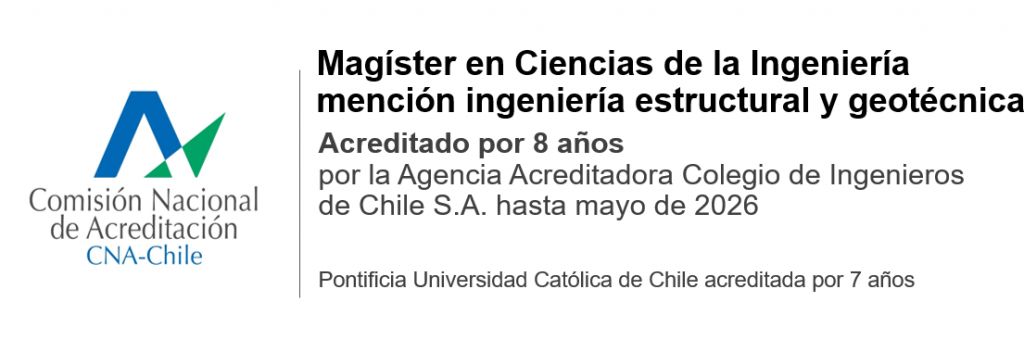
In the field of hydraulic and environmental engineering, graduates of the program will be able to: analyze problems, model and experiment with complex situations and propose innovative solutions; that empower them to perform successfully and with an entrepreneurial spirit in companies and public and private institutions, including the academic and research fields.
Investigations will be carried out in any of the following lines:
Area head: Sebastián Vicuña Díaz
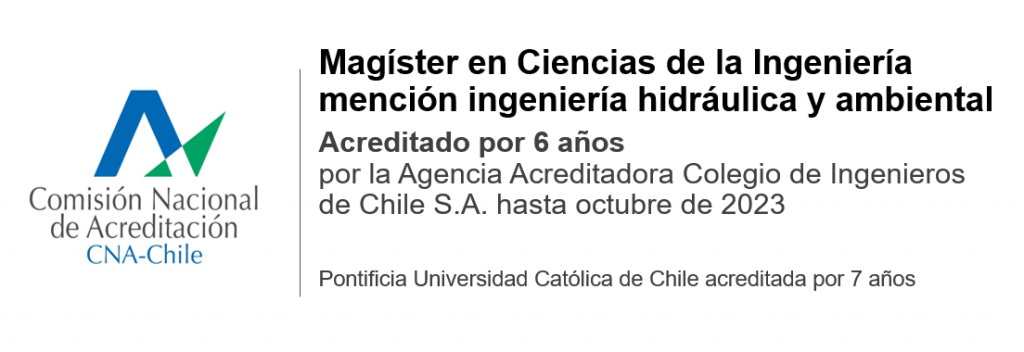
Graduates from the Master of Engineering Sciences Program in this area will be able to analyze transport and logistics problems in diverse environments, model complex situations, and propose innovative solutions that will contribute to the success of public/private businesses and institutions, including the academic and research spheres. Graduates are also expected to have an entrepreneurial spirit and to be able to develop novel methodologies, tools, and processes in their area of expertise.
This research line is focused on studying the microeconomics of transport markets, with special attention given to issues associated with the regulation, externalities, and provision of public assets inherent to the transportation sector. The applied analytical approaches include microeconomic models, statistical and econometric models, and optimization models. This research line includes the development of transport demand models and studying the interaction between the land-use and transportation markets in an urban setting.
This research line focusses on the use of advanced mathematical models to make better operational decisions towards more efficiently using available resources. These models are applied to varied problems in diverse areas, such as vehicle traffic, network flow, public transport operations, air transport operations, the localization and operation of terminals and distribution centers, and the design, operation, and control of logistical and cargo transport systems.
Area head: Felipe Alberto Delgado Breinbauer
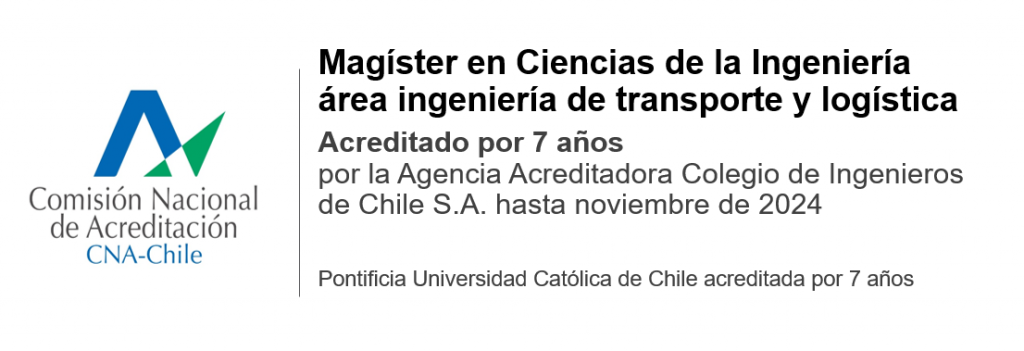
Graduates from the Master of Engineering Sciences Program in this area can specialize in management and economics or operations research, developing skills related to creativity, innovation, and leadership that are integrated with technological tools used in management processes.
Area head: Tomás Reyes Torres
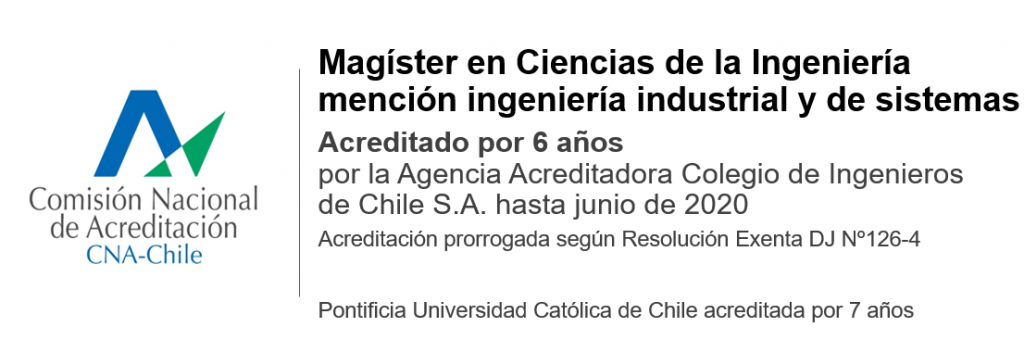
Graduates from the Master of Engineering Sciences Program in this area can conduct research on mechanical design, energy conversion, characterizing and synthesizing materials, new manufacturing processes, mechatronics and automatization, laser metrology, and engineering applications in medicine and biology.
Area head: Jorge Ramos Grez
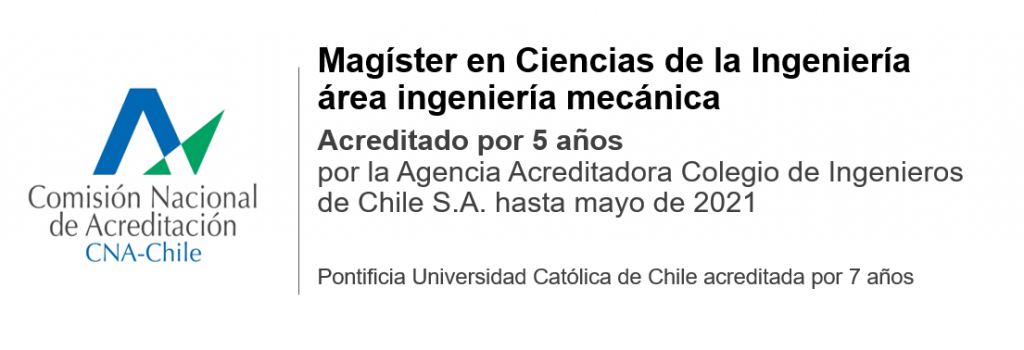
Graduates from the Master of Engineering Sciences Program in this area are able to integrate the principles of Chemical Engineering with food processing and other industries that work with biological materials. Biochemistry, fluid transport, heat transfer, and mass transfer are given particular emphasis. Graduates also acquire specific knowledge for investigating and understanding the factors involved in environmental contamination processes.
Area head: Pedro Saa Higuera
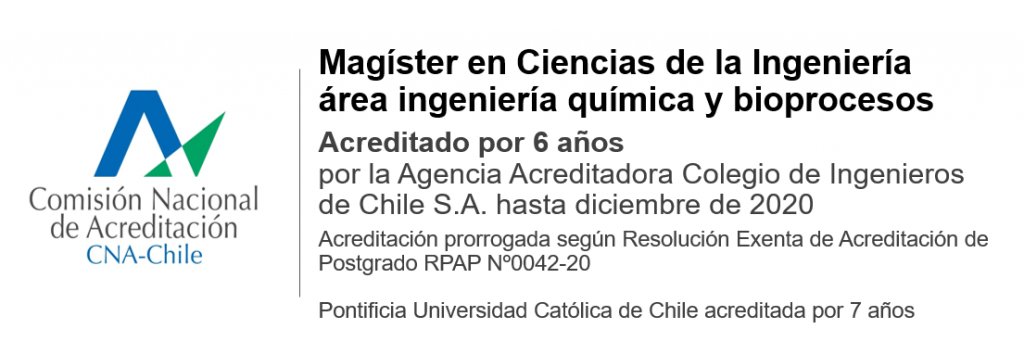
Graduates from the Master of Engineering Sciences Program in this area acquire the competencies needed to work with electric power systems, electrical machinery, power electronics, automatic control and signal processing, electronics, and telecommunications.
Area head: Matías Negrete Pincetic
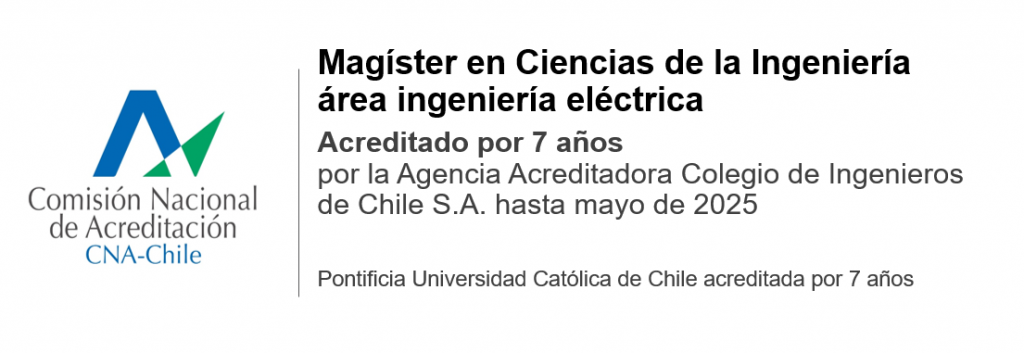
Graduates from the Master of Engineering Sciences Program in this area are able to lead cutting-edge research in the area of computer science, particularly related to computer systems and software, networks, and robotics.
Area head: Denis Parra Santander
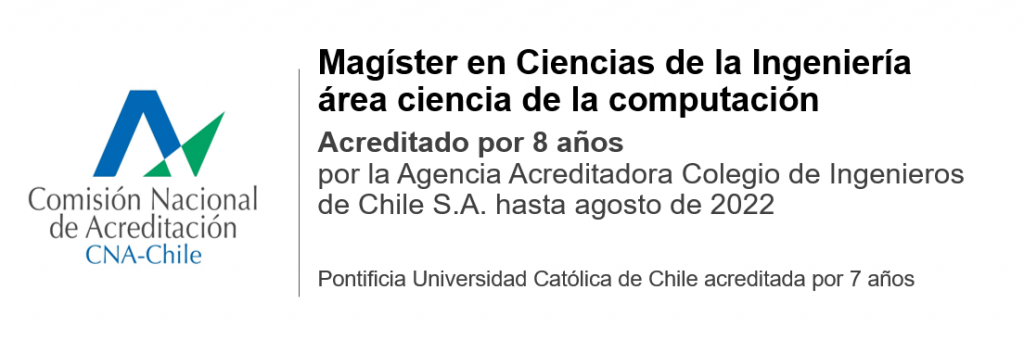
Graduates from the Master of Engineering Sciences Program in this area expand their knowledge on all aspects related to mining management, economics, and operations. Program graduates can conduct research to solve problems associated with minerals exploitation, the management of mining companies, the coordination of mining operations, and the operation of machines used in this sector.
Area head: Álvaro Videla Leiva